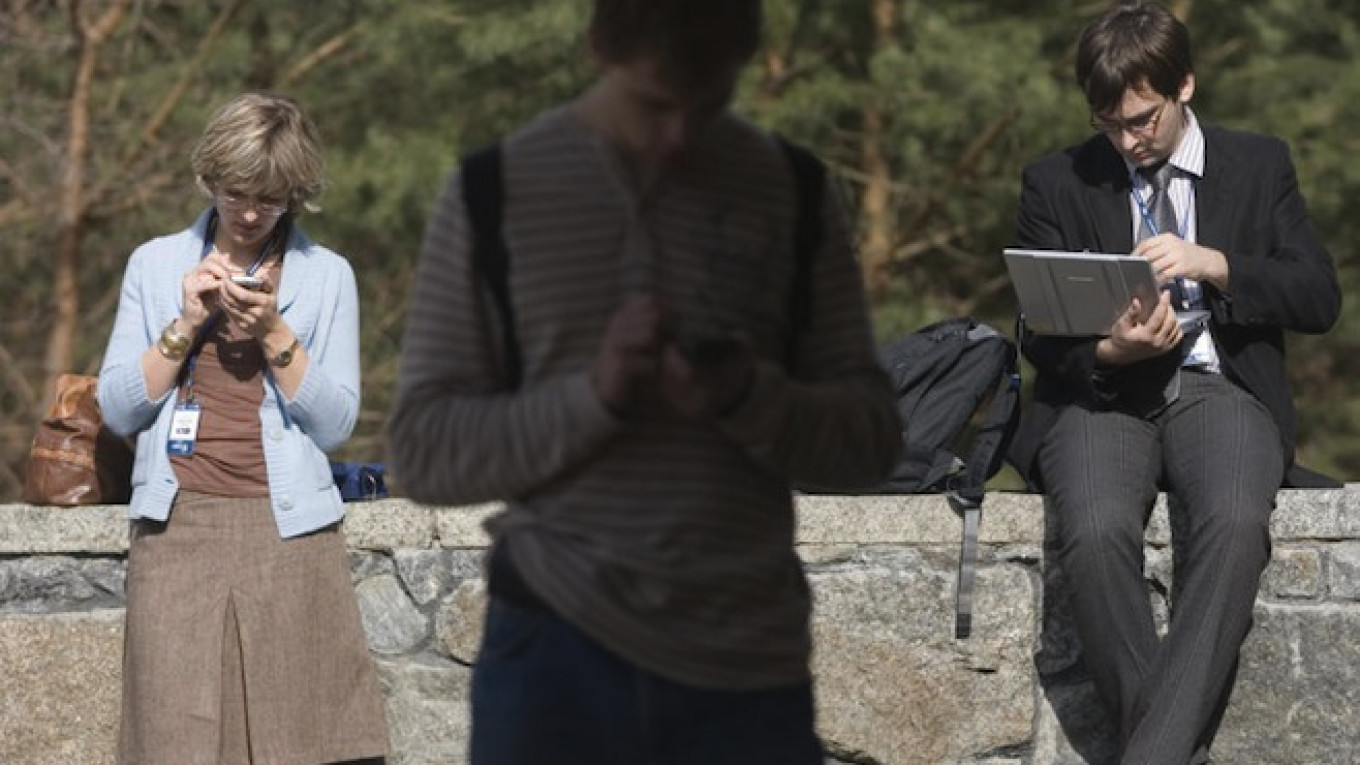Russia's media watchdog is pressuring a religion-focused news site not to report on why nearly a dozen people suffering from cancer committed suicide last month in Moscow, the site said in a statement Thursday.
The site, Orthodox Christianity and the World, posted a warning from watchdog Roskomnadzor telling it to delete all information pertaining to "reasons for suicide, including: 'The wife of the deceased explained that her husband suffered from constant pain because of cancer and often said he was tired of being sick.'"
The watchdog said that the website had only "partially deleted" the controversial content and would need to completely delete the "methods" and "reasons" for suicide, according to the warning posted Thursday.
A 2012 Russian law prohibits online content advocating suicide and drug use, among other things. Any website found in violation of the law can be blocked by the government.
Earlier this month the watchdog warned the Russian-language online encyclopedia Lurkmore, one of the country's most popular websites, that it will be completely blocked because it did not delete all its articles about drug use.
Roskomnadzor has also warned websites not to publish religion-themed cartoons, such as the caricatures of the Muslim prophet Muhammad by French satirical newspaper Charlie Hebdo, on the grounds that they violate Russia's law against extremism.
At least 11 people with cancer committed suicide in the Moscow region in February, one of whom was a university professor who hanged himself in his lecture hall, local media reports said.
Moscow's deputy mayor for social issues, Leonid Pechatnikov, dismissed speculation that the suicides were connected with difficulties in acquiring painkillers, an issue that brought the Health Ministry under scrutiny last year.
Pechatnikov said that at least seven of those people who committed suicide were unaware they had cancer, and that the illness was only revealed in their autopsies.
Prices for many pharmaceuticals in Russia have skyrocketed as much as 20 percent in the past year because the market is highly dependent on imports and the country is struggling with a severe economic downturn that has brought its currency down about 40 percent versus the U.S. dollar.
Prices for pharmaceuticals whose users would die without them are regulated by law, and the government is widely reported to be conducting checks of pharmacies in major cities, including Moscow and St. Petersburg, to protect against price gouging.
Contact the author at p.spinella@imedia.ru
A Message from The Moscow Times:
Dear readers,
We are facing unprecedented challenges. Russia's Prosecutor General's Office has designated The Moscow Times as an "undesirable" organization, criminalizing our work and putting our staff at risk of prosecution. This follows our earlier unjust labeling as a "foreign agent."
These actions are direct attempts to silence independent journalism in Russia. The authorities claim our work "discredits the decisions of the Russian leadership." We see things differently: we strive to provide accurate, unbiased reporting on Russia.
We, the journalists of The Moscow Times, refuse to be silenced. But to continue our work, we need your help.
Your support, no matter how small, makes a world of difference. If you can, please support us monthly starting from just $2. It's quick to set up, and every contribution makes a significant impact.
By supporting The Moscow Times, you're defending open, independent journalism in the face of repression. Thank you for standing with us.
Remind me later.






